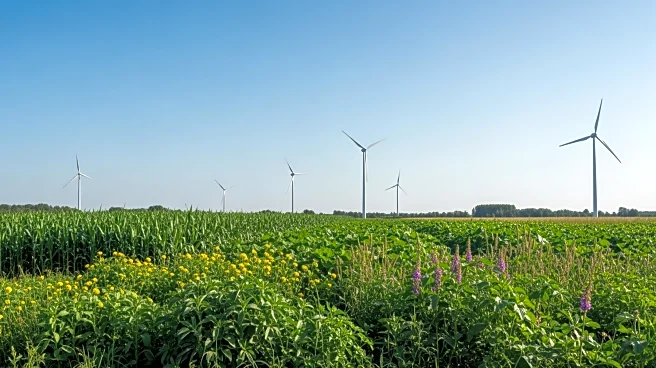What's Happening?
Ahead of the COP30 climate change negotiations in Belém, Brazil, nearly 100 scientists have signed a letter urging global leaders to limit the expansion of biofuels. Brazil is seeking support to quadruple 'sustainable fuel' use, including doubling biofuels consumption.
However, scientific evidence suggests biofuels may emit more greenhouse gases than fossil fuels. The expansion could harm biodiversity, consume scarce water resources, and exacerbate global hunger by raising food prices. The EU previously capped conventional crop-based biofuels at 7% of transport energy, and NGOs in biofuel-producing nations are calling for better governance and traceability.
Why It's Important?
The push for increased biofuels use poses significant environmental and social risks, including biodiversity loss and food insecurity. Scientists warn that biofuels may not be the climate-friendly solution they are often portrayed as, potentially emitting more greenhouse gases than fossil fuels. The call to limit biofuels highlights the need for truly sustainable alternatives to address the climate crisis. Governments must consider the broader impacts of biofuels on ecology and food security, and prioritize solutions that do not exacerbate existing challenges.
What's Next?
As COP30 approaches, global leaders will need to address the concerns raised by scientists regarding biofuels. The negotiations may lead to new commitments or policies to limit biofuels expansion and promote sustainable energy alternatives. Stakeholders, including governments and NGOs, will likely continue advocating for holistic approaches to manage biofuels' negative impacts.
Beyond the Headlines
The resurgence of biofuels as a global commodity risks repeating past mistakes, such as deforestation and human rights abuses. The scientific community's call to limit biofuels reflects a growing awareness of the need for sustainable energy solutions that do not compromise environmental and social well-being.















